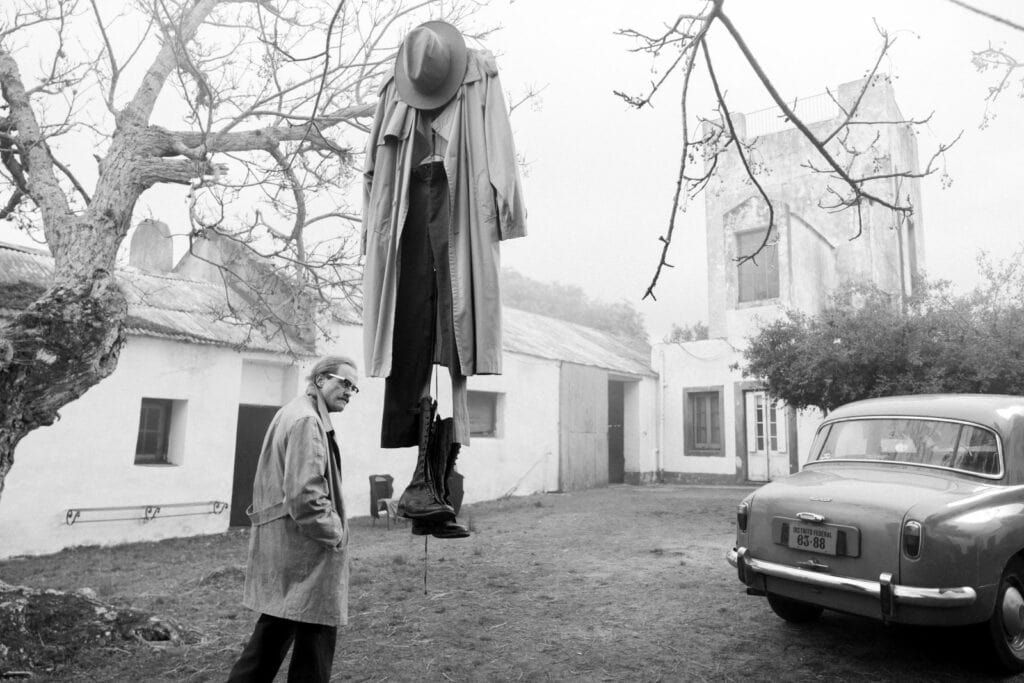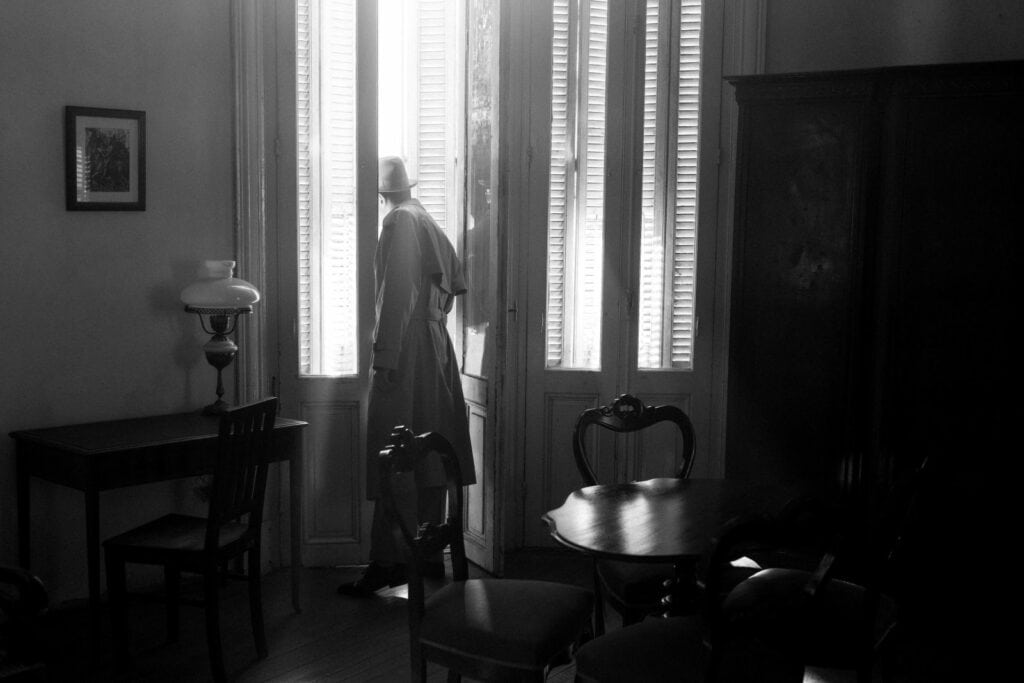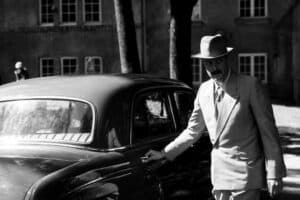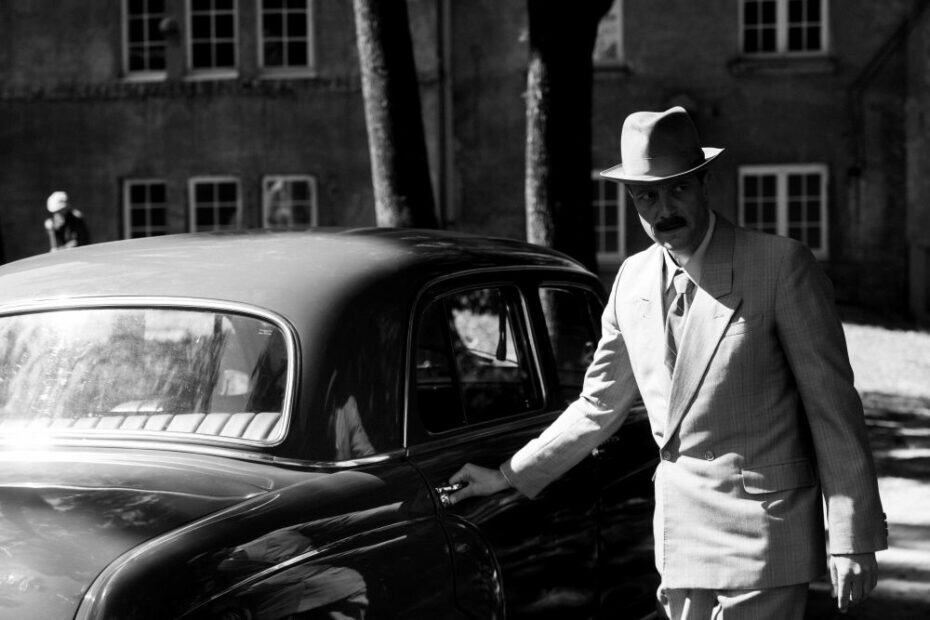The Disappearance of Josef Mengele (Das Verschwinden des Josef Mengele) is the latest film directed by Kirill Serebrennikov. The director has become a staple at the Cannes Film Festival, with his last five films being presented there, including the previous four that competed for the Palme d’Or, among them Tchaikovsky’s Wife and Limonov: The Ballad. Surprisingly enough, the new work only made it to Cannes Première. Given its compelling narrative, visual flair, and other qualities, the story about the “Angel of Death” would have placed it in the higher echelon among the competition films. The film is an adaptation of a non-fiction novel by Olivier Guez, published in 2017, which won the Prix Renaudot.
The opening scene, set in 2023, depicts medical students analysing Josef Mengele’s skeleton.1There is a certain similarity to Raoul Ruiz’s Klimt (2006) here. From there, the film follows Josef Mengele (August Diehl) as he evades justice after World War II, starting with his 1949 escape from Europe through the “ratlines”—networks of Nazi supporters and Catholic clergy aiding war criminals. Spanning three decades, the narrative highlights pivotal stages of his fugitive life in Argentina, Paraguay, and Brazil, culminating in his 1979 drowning. The film employs a jigsaw narrative structure, effectively juggling timelines and locations. One thread follows Mengele’s son, Rolf (Max Bretschneider), as he travels to São Paulo in 1977.
The Disappearance of Josef Mengele

A Hidden Life of a different kind
The framing to present times might make the film sound like The Secret Agent. However, very little unites the two films, apart from their respective cinematic mastery. Serebrennikov has reunited with Vladislav Opelyants, and the stark, monochrome images, combined with his signature long takes, create a spellbinding effect. A much-discussed colour sequence is bound to be divisive, but it provides context in a manner that is less obvious than it might appear to be. August Diehl played a decisively different character in Terrence Malick’s masterful A Hidden Life (2019), and he is a towering presence in this role, bringing the proper qualities to the part. The Disappearance of Josef Mengele offers an impressively objective view of its main character.
However, that kind of perception doesn’t impress everyone. A bizarre, emotional review (I use the term loosely) in The Hollywood Reporter by someone called Jordan Mintzer, already in the first paragraph, spouts the question, “Why am I watching this?” Even more incomprehensibly, he claims that the film embellishes Mengele’s ignoble reputation. This is yet another sad yet illuminating example of what passes for film criticism nowadays. In my Sound of Falling review, I mentioned the podcast from an outlet that used to be one of the best in the world, but now has been toppled by DEI hiring.2The outlet in question is Film Comment. The THR review also rehashes the tired thought that “fascism is on the rise” today.

The host of the aforementioned podcast initially sat down at my table. While trying to discuss the film, I posited that the cinematic aspects alone would make Sound of Falling worthwhile. The notion was harshly dismissed with the comment, “How would cinematic expression be enough?” Meanwhile, she refuted the notion that she was looking for a straight-out statement, even though that was literally what she said.
A comparison between The Disappearance of Josef Mengele and The Zone of Interest clearly results in the former’s favour. Not only because Ilya Demutsky’s score is vastly superior to Mica Levi’s soundscape, but more crucially, for the intellectual rigour missing in Glazer’s film, which clearly bit off more than it could chew.
Whether Mengele is hiding at a farm protected by a Hungarian couple or outsmarting people trying to catch him to bring him to justice, he is always a mesmerising personality, and even his most egregious statements manage to make a certain sense. The producer, Felix von Boehm, noted in a press release that the film aims to “precisely depict ideological narrowness”. That is, unfortunately, all too topical today and clearly visible in current conflicts, where people struggle to distinguish between democracy and dictatorship. With that in mind, the meaning of the word disappearance might not merely be about how seemingly effortless it was for Mengele to hide, but more wide-ranging current disappearances as well.
The Disappearance of Josef Mengele

Director: Kirill Serebrennikov
Date Created: 2025-08-27 20:47
5
Pros
- Stunning cinematography
- Great performances
- An objective view of the topic.
Cons
- None
